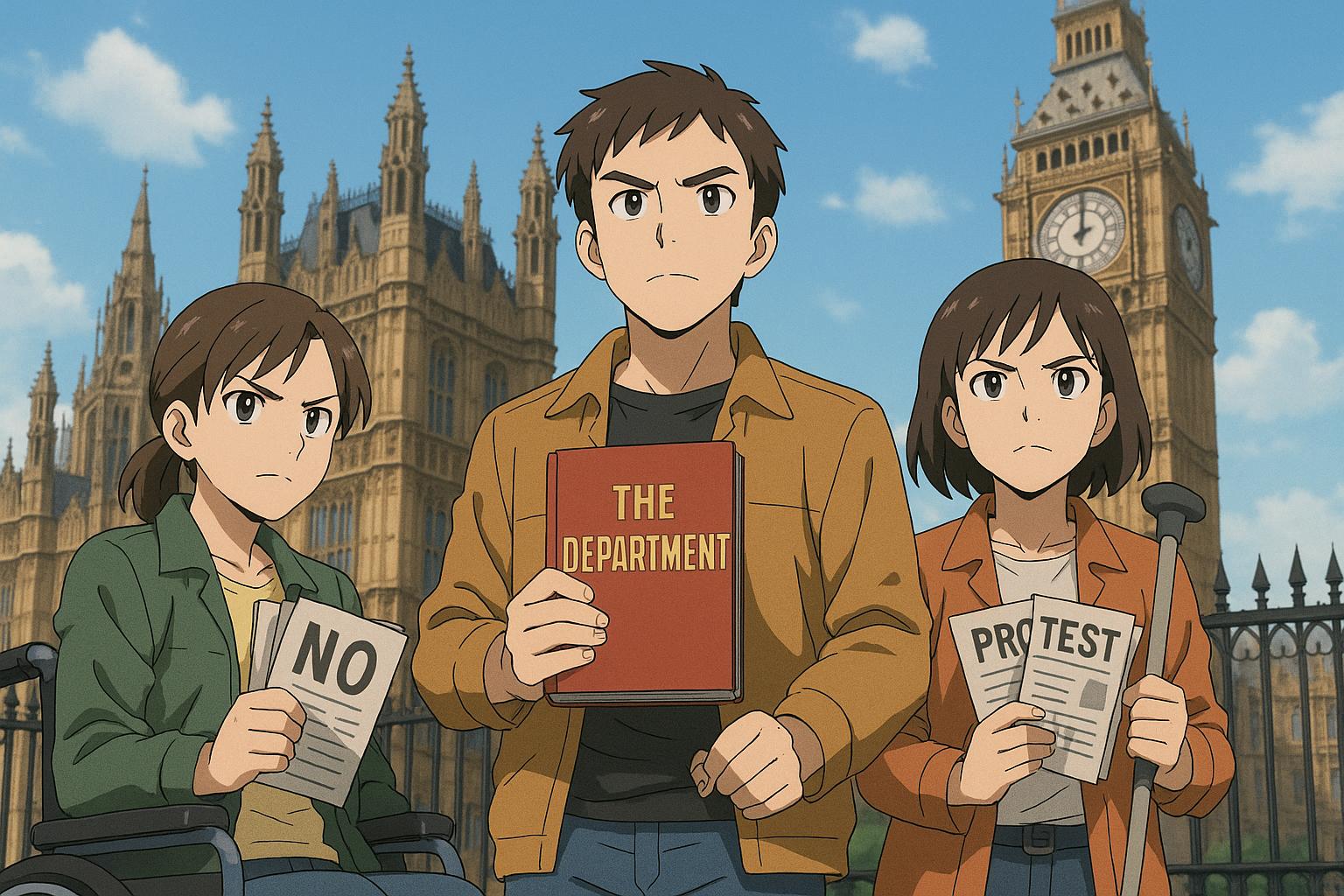Amid the ongoing debates regarding disability benefits, a recent incident at the UK Parliament has heightened tensions between disabled activists and security forces tasked with maintaining order at the venue. Three activists—Paula Peters, Andy Mitchell, and a woman referred to as Anna—faced intrusive questioning and a concerning confiscation of political materials as they attempted to observe discussions regarding cuts to personal independence payment (PIP).
The activists were taken aback when a parliamentary security officer confiscated not only their political leaflets but also a copy of The Department, a critical book authored by John Pring, the editor of Disability News Service. The book sheds light on the harrowing links between the Department for Work and Pensions (DWP) and the deaths of numerous disabled benefit claimants—an issue that has provoked significant public outcry and concern. Anna remarked, "It was literally what we were going to hear MPs talk about," highlighting the vital relevance of the book in the context of the debate.
The security staff justified their actions by labelling the confiscated items as "too political". This has raised questions about what constitutes permissible literature within the parliamentary estate. Peters expressed her frustration, saying, “We are disabled people, disability activists, and you’re treating us like criminals. This is not OK.” Such policing of activists and their materials represents a troubling escalation in the restrictions surrounding public discourse on policies affecting disabled individuals.
This incident is symptomatic of a broader atmosphere of hostility towards dissenting voices, particularly regarding austerity measures which have been linked to a tragic increase in deaths among disabled individuals. The book The Department provides an in-depth examination of these systemic issues, corroborated by personal accounts from twelve individuals who have tragically succumbed due to DWP policies. As austerity measures continue to expand, the fallout from such policies has left indelible marks on the most vulnerable in society.
Despite the parliamentary press office confirming that there had been no recent changes to policies governing what can be taken into the parliamentary estate, it was notable that the same group of activists had earlier faced no issues when passing through security at another parliamentary building, Portcullis House. The inconsistency in the application of security measures has only added to the activists' feelings of being under undue scrutiny.
The implications of these cuts were starkly addressed during the recent debate on PIP. Veteran Labour MP Diane Abbott highlighted the harsh realities associated with reducing financial support for disabled individuals, warning that such measures not only diminish the quality of life for those affected but could ultimately lead to devastating psychological impacts. Fellow MP Rachael Maskell echoed these sentiments, stressing the need for solidarity with disabled people facing such dire circumstances.
Sir Stephen Timms, the minister for social security and disability, defended the necessity of these cuts, arguing that the government aims to make PIP costs more sustainable while addressing rising expenditures tied to the benefit. Yet, the advocates maintain that the costs of such austerity are borne by the most vulnerable, raising crucial ethical questions about the direction of social policy in the UK.
In light of this incident, activists such as Peters, Mitchell, and Anna stand firm in their commitment to advocate for the rights of disabled individuals and ensure their voices are heard in the corridors of power. They have articulated a clear determination that, regardless of security obstacles, they will continue to challenge austerity policies and demand accountability from lawmakers. As Peters concluded, “They can take all the leaflets and badges and books they like, but it won’t stop us; we have a right to be in parliament and lobby MPs.”
The future of activism in the UK Parliament may very well hinge on how these attempts to suppress essential discussions around disability and welfare reforms are navigated in the coming months.
Reference Map
- Paragraphs 1, 2, 5, 6, 8
- Paragraphs 3, 4
- Paragraph 7
- Paragraph 7
- Paragraph 7
- Paragraph 8
- Paragraph 8
Source: Noah Wire Services
